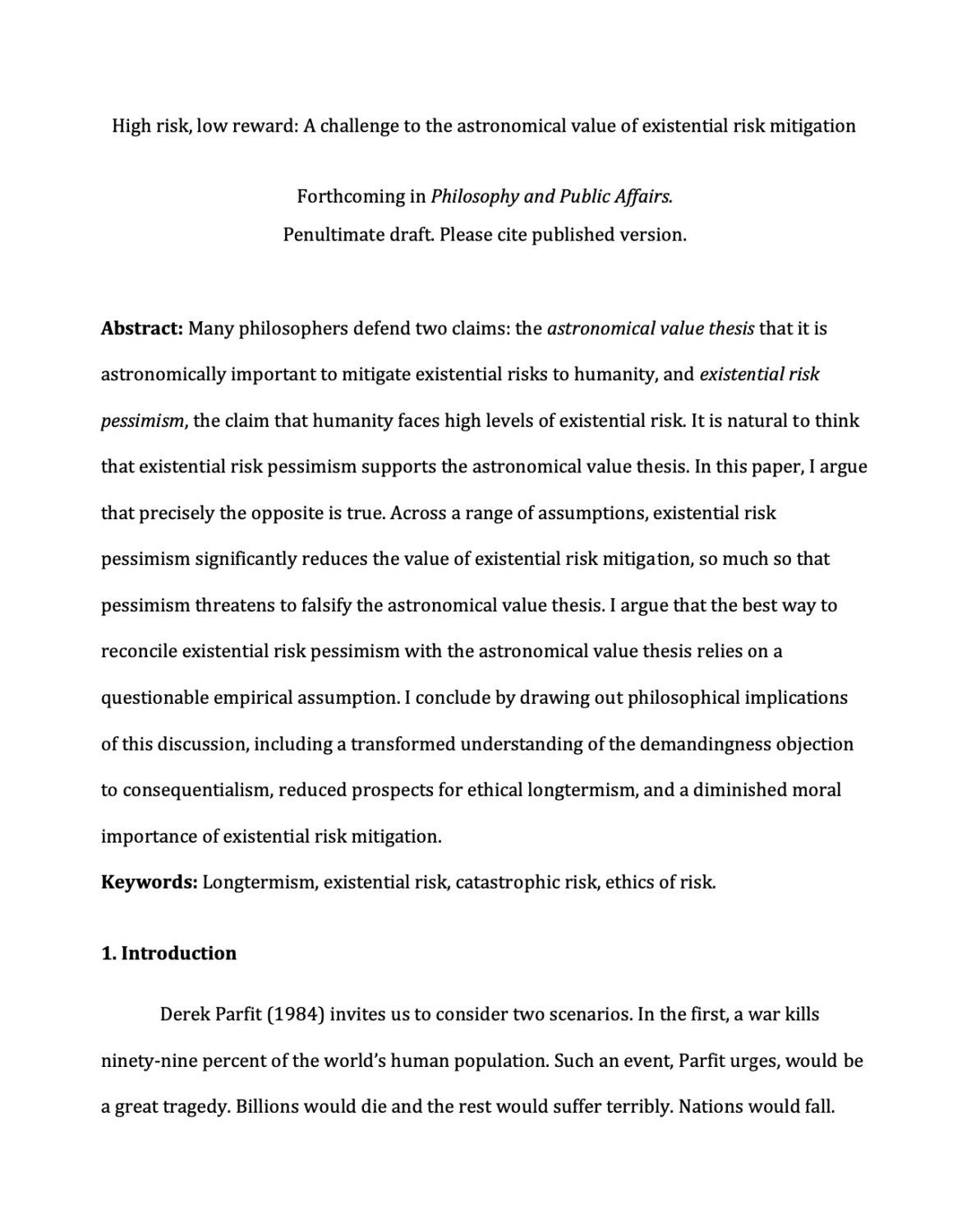High risk, low reward: A challenge to the astronomical value of existential risk mitigation
David Thorstad (Global Priorities Institute, University of Oxford)
GPI Working Paper No. 6-2023, published in Philosophy and Public Affairs
Many philosophers defend two claims: the astronomical value thesis that it is astronomically important to mitigate existential risks to humanity, and existential risk pessimism, the claim that humanity faces high levels of existential risk. It is natural to think that existential risk pessimism supports the astronomical value thesis. In this paper, I argue that precisely the opposite is true. Across a range of assumptions, existential risk pessimism significantly reduces the value of existential risk mitigation, so much so that pessimism threatens to falsify the astronomical value thesis. I argue that the best way to reconcile existential risk pessimism with the astronomical value thesis relies on a questionable empirical assumption. I conclude by drawing out philosophical implications of this discussion, including a transformed understanding of the demandingness objection to consequentialism, reduced prospects for ethical longtermism, and a diminished moral importance of existential risk mitigation.
Other working papers
Will AI Avoid Exploitation? – Adam Bales (Global Priorities Institute, University of Oxford)
A simple argument suggests that we can fruitfully model advanced AI systems using expected utility theory. According to this argument, an agent will need to act as if maximising expected utility if they’re to avoid exploitation. Insofar as we should expect advanced AI to avoid exploitation, it follows that we should expected advanced AI to act as if maximising expected utility. I spell out this argument more carefully and demonstrate that it fails, but show that the manner of its failure is instructive…
Against the singularity hypothesis – David Thorstad (Global Priorities Institute, University of Oxford)
The singularity hypothesis is a radical hypothesis about the future of artificial intelligence on which self-improving artificial agents will quickly become orders of magnitude more intelligent than the average human. Despite the ambitiousness of its claims, the singularity hypothesis has been defended at length by leading philosophers and artificial intelligence researchers. In this paper, I argue that the singularity hypothesis rests on scientifically implausible growth assumptions. …
Moral demands and the far future – Andreas Mogensen (Global Priorities Institute, Oxford University)
I argue that moral philosophers have either misunderstood the problem of moral demandingness or at least failed to recognize important dimensions of the problem that undermine many standard assumptions. It has been assumed that utilitarianism concretely directs us to maximize welfare within a generation by transferring resources to people currently living in extreme poverty. In fact, utilitarianism seems to imply that any obligation to help people who are currently badly off is trumped by obligations to undertake actions targeted at improving the value…

